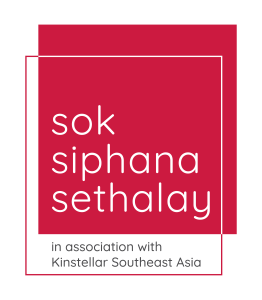Dual Class Share Structures: Are Singapore Public Investors Ready?
On 16 February 2017, the Singapore Exchange kicked off a public consultation on dual class share structures. A dual class share structure gives one set of shareholders greater voting powers than other shareholders. In this structure, one class of shares with only one vote per share will be subordinated to another class carrying multiple votes. Typically, the controlling shareholders are the founding shareholders or top executives of the company. Certain international exchanges such as the New York Stock Exchange and Nasdaq Stock Market permit companies to list dual-class voting shares, and companies like Google, Facebook and Alibaba have adopted such structures.
As part of the 2-month public consultation, the Singapore Exchange is seeking views on:
- whether to introduce a listing framework for dual class share (“DCS”) structures in Singapore (“DCS Framework”), and whether the DCS Framework will be beneficial to companies, investors and the Singapore economy; and
- proposed safeguards for minority investors should the DCS Framework be introduced.
Possible Listing Framework for Dual Class Share Structures in Singapore
Advocates of a DCS Framework argue that it insulates owner managers against pressure from ordinary shareholders for short-term returns, thus allowing them to focus on a longer term vision for the company. Further, a DCS framework may give companies more flexibility in raising capital and investors a wider range of investment opportunities. It could also elevate Singapore as a preferred listing venue and enable the Singapore stock market to attract high quality companies, especially in the high-technology, biopharmaceutical and life sciences industry. Conversely, sceptics of a DCS Framework warn that risks of abuse could outweigh the said benefits. Ultimately, the viability of DCS structures will depend on having appropriate safeguards in place to promote market transparency and mitigate governance risks.
Enhancement of admission criteria
The Singapore Exchange proposes that more stringent listing criteria be adopted for companies with a DCS structure as a potential safeguard. The following are possible additional listing criteria under the DCS Framework, in addition to the current admission criteria for Mainboard companies:
- Market Capitalisation. To justify accepting the potential risks and to show that there is palpable investor demand, an issuer with a DCS structure is expected to have a market capitalisation of at least S$500 million based on the issue price at the initial public offering and post-invitation share capital.
- Sophisticated Investors. The Mainboard listing rules require issuers to have a public float of between 12% to 25% at the initial public offering and post-invitation share capital, depending on the market capitalisation of the issuer at the initial public offering. To provide assurance on the quality of the issuer, the level of participation by sophisticated investors (including pre-IPO investors) is expected to be between 10.8% and 13.5% at the initial public offering, or 90% of the 12% to 15% public float requirement under the Mainboard listing rules for issuers with a market capitalisation in excess of S$500 million.
- Compelling Reason. In determining whether there is a compelling reason for an issuer to adopt a DCS structure, the Singapore Exchange will make a holistic assessment of various factors (which are non-exhaustive) such as industry and operating track record of an issuer.
Safeguards
To safeguard against entrenchment risks, the Singapore Exchange is seeking views on the following, among other things:
- whether a maximum voting differential between each share which carries multiple votes (“MV Share”) and each share which carries one vote (“OV Share”), or a fixed ratio, should be introduced, and the appropriate maximum of fixed ratio (as the case may be) of voting differential between each MV Share and OV Share;
- whether issuance of MV Shares post-listing should be prohibited, on grounds of preventing voting rights of existing shareholders from being disparately reduced and mitigating the effect of owner managers exercising their voting powers in a manner detrimental to the interests of minority shareholders; and
- whether it should be a mandatory requirement that MV Shares will be automatically converted into OV Shares upon the occurrence of certain events (e.g. if the owner manager transfers the MV Shares to other parties of if he/she ceases to assume a management role in the issuer) or whether such conversion provision should be left to issuers to adopt on a voluntary basis.
To safeguard against expropriation risks, the Singapore Exchange is seeking views on the following, among other things:
- whether it should be mandatory for issuers with a DCS structure to adopt recommendations in the Code of Corporate Governance on board composition i.e. majority of the Nominating Committee, Remuneration Committee and Audit Committee, including their respective chairmen must be independent; if the chairman of the board is not independent, at least half of the board must comprise of independent directors, with a lead independent director appointed;
- whether the superior voting rights of MV Shares should be excluded or limited for the appointment of independent directors of issuers with a DCS structure;
- whether it should be mandatory for issuers with a DCS Structure to establish a separate board risk committee (the majority of whom, including the chairman, should be independent directors) in order to enhance independent scrutiny of the owner managers’ actions; and
- requiring issuers with a DCS structure to provide prominent disclosure of the risks of DCS structures in their prospectuses, to disclose the holders of MV Shares, regardless of their shareholding percentage, both at IPO and on a continuing basis in the annual reports of the issuers with a DCS structure.
The consultation ends on 17 April 2017.
Please click here to view the press release by Singapore Exchange and the consultation paper.
If you have any questions or require any additional information, please contact Yap Lian Seng or Lee Chongshen of ZICO Insights Law LLC.
This alert is for general information only and is not a substitute for legal advice.



